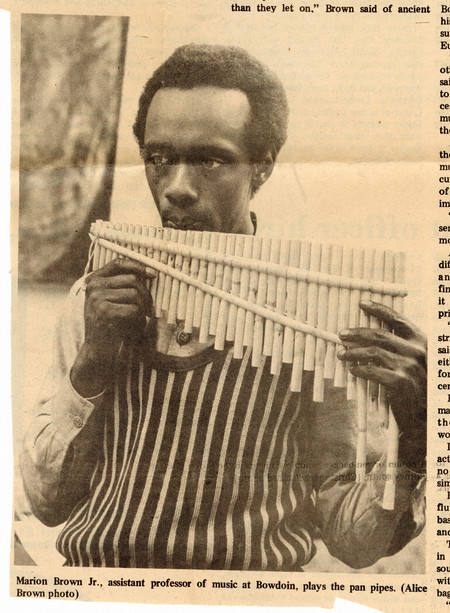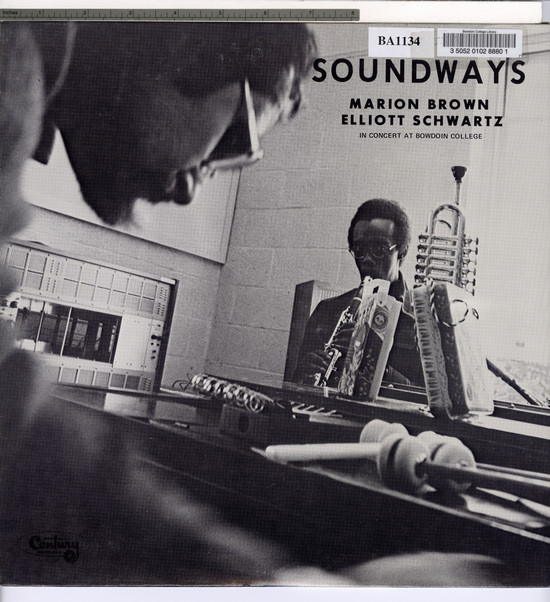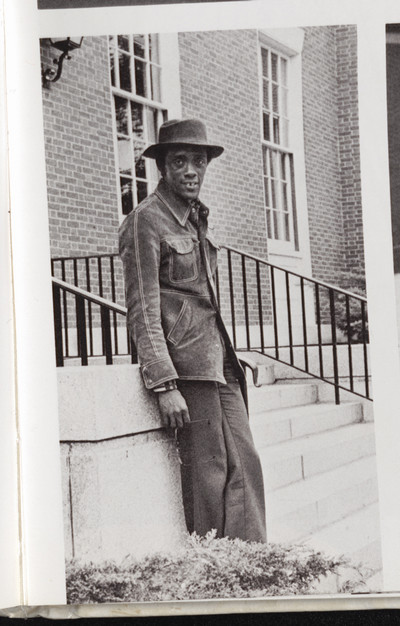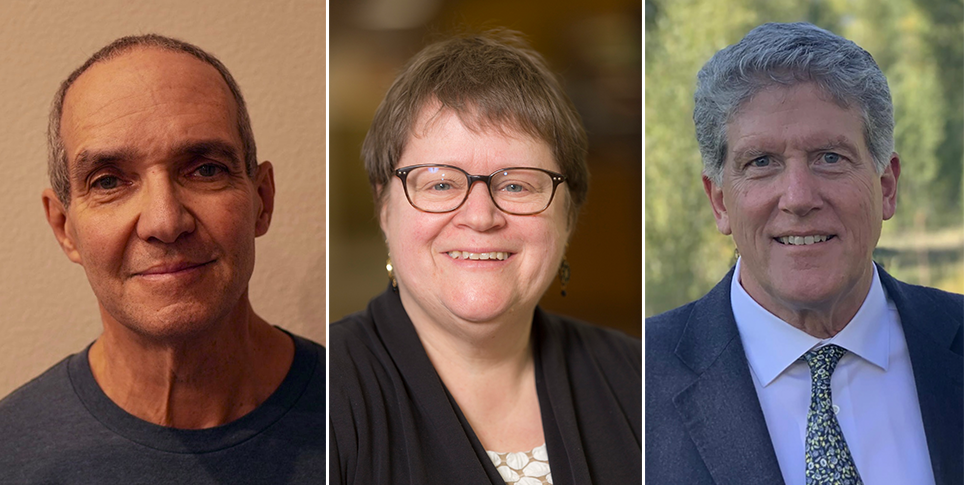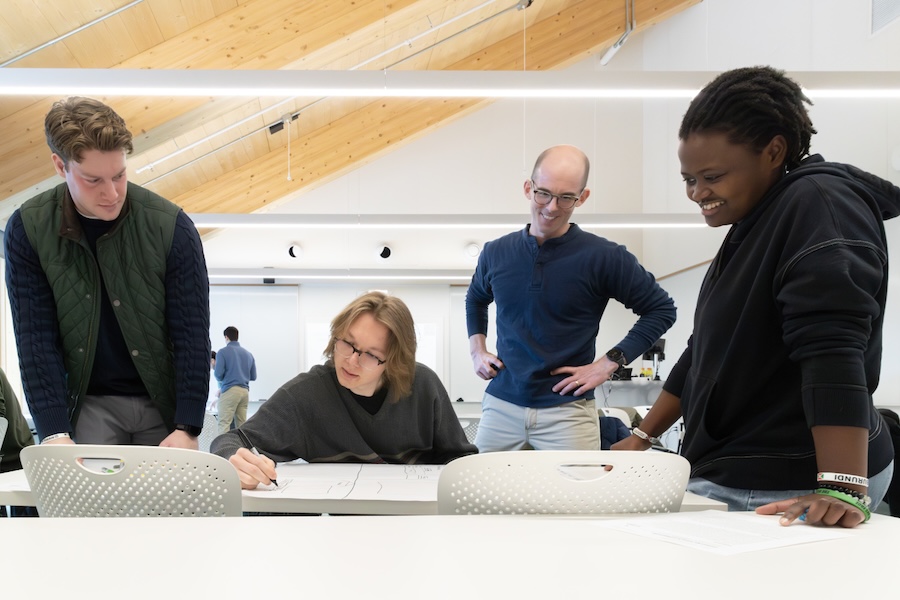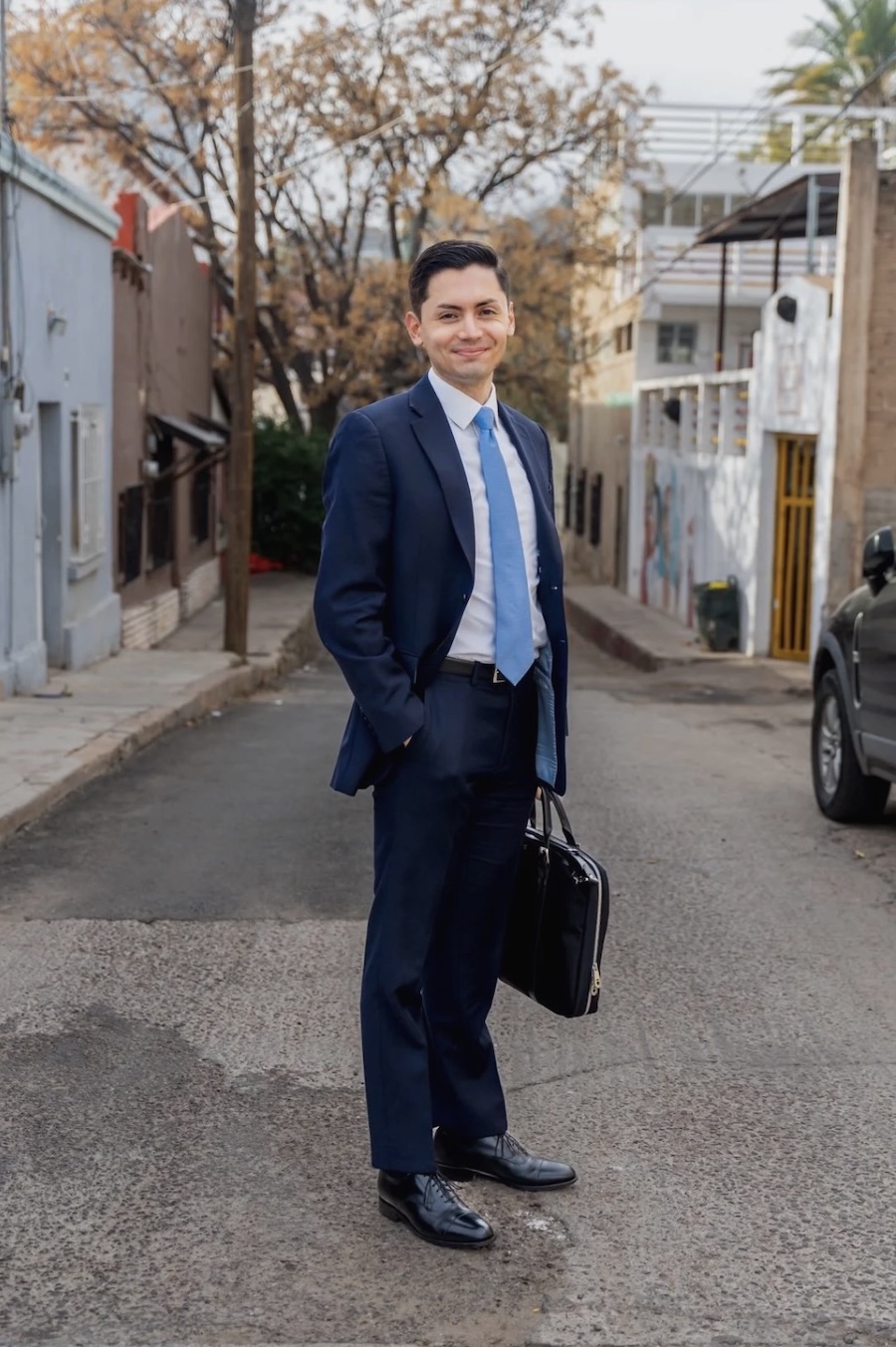Music Department Awards Inaugural Marion Brown Prize for Emerging Composers
By Tom Porter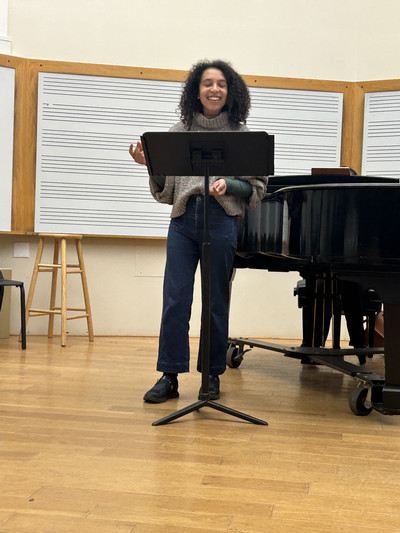
“I also love liberal arts colleges with music departments,” she added, “because everyone has such different realms of experience. They don't only specialize in music but also have all this knowledge from other areas, which adds new perspective. You learn a lot from them.”
As well as being a composer, Gates is a jazz bassist and vocalist with a growing reputation in the Boston area, where she recently graduated with a joint degree in anthropology and jazz performance from Harvard University and Berklee College of Music.
She plans to pursue a master’s degree in performance at Berklee, but in the meantime Gates is welcomed as the newest member of Bowdoin’s musical community: She is the first winner of the Marion Brown prize—an annual residency for up-and-coming composers from underrepresented communities. The award is named in honor of the free jazz pioneer and composer who taught (and studied) at Bowdoin in the early 1970s.
Early in the spring semester, Gates spent several days on campus, where she rehearsed with student instrumental and vocal performers. She will return in May for a performance of three of her pieces by a variety of student groups, including a choir, a string quartet, and a jazz ensemble.
Some of the work is written down in notated form, and some of it is improvised—something that music lecturer Jeffrey Christmas, who directs the Bowdoin choral ensemble, said the students found exciting.
“Working with Devon was delightful,” he said. “She immediately encouraged the singers to put the sheet music down and intuitively make music together. They were encouraged to improvise and trust themselves while learning. It was so refreshing and will inform our work for the rest of the semester. Frankly, it will inform and influence our work for semesters to come!”
Gates was chosen from some 160 applicants across the globe, said Professor of Music Vineet Shende, including composers from Asia and South America.
“Devon herself is a wonderful singer and bass player,” he said, “and one of the things that really appealed to us was that she really tries to create this kind of syncretism between jazz and concert music. In a lot of her works, there are improvised sections as well as written-out portions, so you get both the narrative kind of form you find in concert music alongside the improvisation.”
Shende said the idea for the prize came out of a desire to push back against the prevailing white, male identity that underpins a lot of classical, concert music. “By the late nineteenth and early twentieth century, there was this racist assumption among many music scholars and composers that Germanic music was somehow superior to other forms of music.” That idea has been somewhat diluted over the years, he added, “but the chances are, still, that if you’re in an orchestra today, you’ll be playing music that’s largely white, male, and Germanic in origin.”
To counter that trend, Shende and his colleagues came up with the idea of an annual award for composers from varied backgrounds. That prize will vary from year-to-year—one year, composers would have some of their existing works performed by a variety of student ensembles (as is the case with Gates); another year would involve the performance of a newly arranged historical work and, every third year, Bowdoin will commission new pieces by the prizewinning composer.
The goal, said Shende, is to find and promote promising, original, young talent from outside the musical “mainstream,” as well as to expand the horizons of Bowdoin’s student performers (and their audiences).
[Check out this in-studio performance of Gates performing with her ensemble at Berklee.]
Who was Marion Brown?
Marion Brown Jr. was an assistant professor of music at Bowdoin from 1971 until 1974, said Associate Professor of Music Tracy McMullen, who teaches jazz and improvisation and whose idea it was to name a prize after Brown.
“Bowdoin College hired Brown based on his work as a musician, composer, and improviser, as well as his years of study at Clark College and Howard University,” explained McMullen. Unusually, Brown was simultaneously both a student and teacher at Bowdoin (Class of 1974). He was also one of the first Black faculty hired as the College instituted its Afro-American Studies Program (as it was then called).
“Brown was key in supporting and developing that program, including extensive work for an annual Black Arts Festival on campus. He taught courses in the history of Afro-American music, improvisation, and African music,” said McMullen.
In the 1960s, Brown, who in addition to being an improviser and composer was also a writer and visual artist, was active in New York City’s Black Arts Movement, along with other artists, poets, and musicians. “Friends and collaborators at that time,” said McMullen, “included jazz legends John Coltrane, Archie Shepp, Albert Ayler, Pharaoh Sanders, and Sun Ra, as well as writers like Amiri Baraka (Leroi Jones) and AB Spellman.” From 1967 to 1970, Brown lived in Europe, where he continued performing, recording, and composing.
During his time at Bowdoin, Brown continued touring and recording. This included a live duet album, recorded in the campus gym, with renowned composer and former Robert K. Beckwith Professor of Music Emeritus Elliott Schwartz, who died in 2016. Read more. Brown died in 2010, aged 79.
